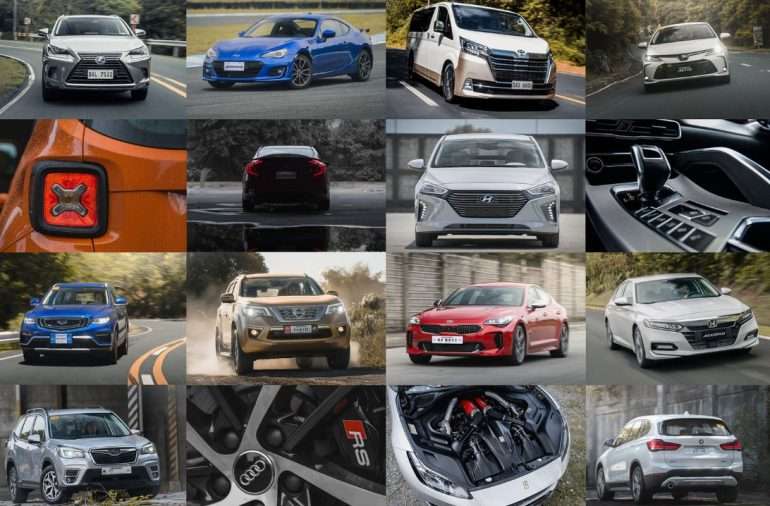car insurance search engines
Finding the Best Car Insurance⁚ A Guide to Using Search Engines
Navigating the world of car insurance can feel overwhelming․ Smartly using search engines is key․ Begin by using precise keywords like “best car insurance [your state]”․ Explore various search engine options; each may offer different results․ Remember to check the date of any articles or reviews you find to ensure the information is current․
Leveraging Online Comparison Tools
Online comparison tools are invaluable resources in your car insurance search․ These platforms allow you to input your details (age, driving history, vehicle information, etc․) once, and receive quotes from multiple insurers simultaneously․ This saves you considerable time and effort compared to visiting each insurer’s website individually․ However, remember that not all comparison websites list every insurer, so don’t rely on just one․ Explore several different platforms to broaden your options and ensure you’re getting a comprehensive overview of the market․ Pay close attention to the details of each quote; don’t just focus on the price․ Consider the coverage levels offered, deductibles, and any additional features or discounts․ Some comparison tools offer helpful filters to narrow down your results based on specific needs, such as liability limits, collision coverage, or roadside assistance․ Utilize these filters to fine-tune your search and find policies that align with your risk tolerance and budget․ Before committing to a policy through a comparison site, always verify the details directly with the insurer to ensure accuracy and avoid any misunderstandings․ Remember, the cheapest option isn’t always the best option․ A slightly more expensive policy with superior coverage could save you significantly more money in the long run in case of an accident․ Take your time, compare thoroughly, and choose the policy that best protects you and your vehicle․ Don’t hesitate to contact insurers directly via phone or email if you have any questions or require clarification on specific policy details․ A well-informed decision will ensure you get the car insurance coverage that truly meets your needs and provides you with peace of mind․
Understanding Key Features and Filters
Effective use of car insurance comparison websites hinges on understanding their features and filters․ Most platforms allow you to specify your vehicle details (make, model, year), driving history (accidents, violations), and personal information (age, location)․ These details are crucial for accurate quote generation; Pay close attention to the available coverage options․ Common types include liability, collision, comprehensive, uninsured/underinsured motorist, and medical payments․ Understanding the nuances of each is essential․ Liability coverage protects others in case you cause an accident; collision covers damage to your vehicle regardless of fault; comprehensive covers damage from non-collision events (e․g․, theft, vandalism); uninsured/underinsured motorist protects you if involved with an uninsured driver; and medical payments cover medical expenses for you and your passengers․ Many sites offer filters to refine your search․ You can often filter by price range, coverage levels, deductibles, and additional features (roadside assistance, rental car reimbursement)․ Experiment with different filter combinations to see how they impact the results․ Don’t overlook the importance of deductibles․ A higher deductible means lower premiums but higher out-of-pocket costs in case of a claim; Conversely, a lower deductible means higher premiums but lower out-of-pocket expenses․ Carefully weigh the balance between premium cost and deductible amount to find the best fit for your budget and risk tolerance․ Remember that the information provided by comparison websites is based on the data you input․ Ensure accuracy in your entries to receive the most precise and relevant quotes․ Take your time exploring the features and filters; understanding them is key to finding the most suitable car insurance policy․
Reading Reviews and Comparing Quotes
Once you’ve generated several quotes using online comparison tools, the next crucial step is a thorough review and comparison․ Don’t solely focus on the price; consider the overall value․ Read customer reviews of different insurance companies on independent review sites like Yelp or the Better Business Bureau․ Pay attention to comments about claims processing speed, customer service responsiveness, and overall satisfaction․ A lower premium might seem attractive, but negative reviews about claims handling could outweigh the cost savings․ Compare the specific coverage details offered by each quote․ While the price might be similar, the coverage limits or deductibles could vary significantly․ Ensure the coverage adequately protects your assets and meets your specific needs․ Look beyond the basic coverage․ Some companies offer valuable add-ons like roadside assistance, rental car reimbursement, or accident forgiveness; These features can be beneficial in the event of an accident or breakdown․ When comparing quotes, consider the company’s financial stability․ Check the insurer’s ratings from organizations like A․M․ Best or Moody’s․ A strong financial rating indicates a lower risk of the company’s inability to pay out claims․ Organize your quotes in a spreadsheet or table for easy comparison․ This helps visualize the differences in price, coverage, and additional features․ Don’t hesitate to contact the insurance companies directly with any questions you may have about the quotes or coverage details․ Their representatives can clarify any uncertainties and help you understand the policy terms better․ Remember, the cheapest option isn’t always the best․ Prioritize comprehensive coverage and reliable customer service, even if it means paying a slightly higher premium․ Thorough review and comparison are vital steps in securing the most suitable car insurance for your circumstances․
Avoiding Common Pitfalls
Using online car insurance comparison tools offers significant advantages, but it’s crucial to be aware of potential pitfalls․ One common mistake is focusing solely on price․ While premiums are important, don’t overlook the coverage details․ A lower premium with inadequate coverage could leave you financially vulnerable in the event of an accident․ Another pitfall is failing to verify the accuracy of the information provided by comparison websites․ Always double-check the details with the insurance company directly before making a decision․ Some websites may not display all relevant information or may present it in a misleading way․ Be wary of overly simplified comparisons․ Car insurance policies are complex, and comparing them solely on price can be deceptive․ Consider factors like deductibles, coverage limits, and additional features․ Avoid clicking on links from unknown or untrusted sources․ Phishing scams are prevalent online, and clicking on malicious links could compromise your personal information․ Only use reputable comparison websites and insurance company websites directly․ Don’t be pressured into purchasing a policy immediately․ Take your time to compare multiple quotes, read reviews, and understand the terms of each policy․ Rushing the process can lead to regret later․ Beware of hidden fees or add-ons․ Some insurance companies may include additional charges that are not immediately apparent․ Carefully review all the details of the policy before agreeing to it․ Failing to update your information regularly can lead to inaccurate quotes and potential coverage gaps․ Ensure your information, such as your driving history and vehicle details, is always up-to-date․ Don’t assume that the first quote you receive is the best one․ Explore multiple options and compare them thoroughly․ Remember, the best policy is one that provides adequate coverage at a reasonable price, tailored to your specific needs and risk profile․ By avoiding these common pitfalls, you can make an informed decision and secure the best car insurance for your situation․




